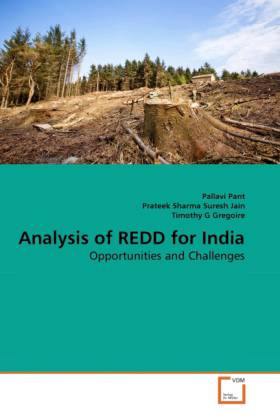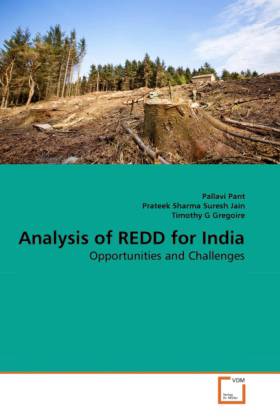
- Afhalen na 1 uur in een winkel met voorraad
- Gratis thuislevering in België vanaf € 30
- Ruim aanbod met 7 miljoen producten
- Afhalen na 1 uur in een winkel met voorraad
- Gratis thuislevering in België vanaf € 30
- Ruim aanbod met 7 miljoen producten
Zoeken
Analysis of REDD for India
Opportunities and Challenges
Pallavi Pant, Prateek Sharma Suresh Jain, Timothy G Gregoire
Paperback | Engels
€ 48,45
+ 96 punten
Omschrijving
Deforestation and forest degradation have been identified as a key source of global GHG emissions and reducing emissions from deforestation and degradation (REDD) has been identified as an important and low cost method for climate change mitigation. The aim of the present study was to assess REDD as a greenhouse gas reduction option and to assess the potential of REDD in India. SWOT Analysis technique was used for the assessment of REDD while an in-depth literature review, together with quantitative trend analysis for forest degradation using Mann Kendall Test formed the basis for assessment of the Indian situation vis-à-vis REDD. Success of REDD Plus in India lies primarily in the 'plus' component i.e. projects based on conservation and enhancement of carbon stocks and reducing emissions from degradation in specific regions.
Specificaties
Betrokkenen
- Auteur(s):
- Uitgeverij:
Inhoud
- Aantal bladzijden:
- 76
- Taal:
- Engels
Eigenschappen
- Productcode (EAN):
- 9783639287448
- Verschijningsdatum:
- 19/08/2010
- Uitvoering:
- Paperback
- Formaat:
- Trade paperback (VS)
- Afmetingen:
- 152 mm x 229 mm
- Gewicht:
- 122 g

Alleen bij Standaard Boekhandel
+ 96 punten op je klantenkaart van Standaard Boekhandel
Beoordelingen
We publiceren alleen reviews die voldoen aan de voorwaarden voor reviews. Bekijk onze voorwaarden voor reviews.











